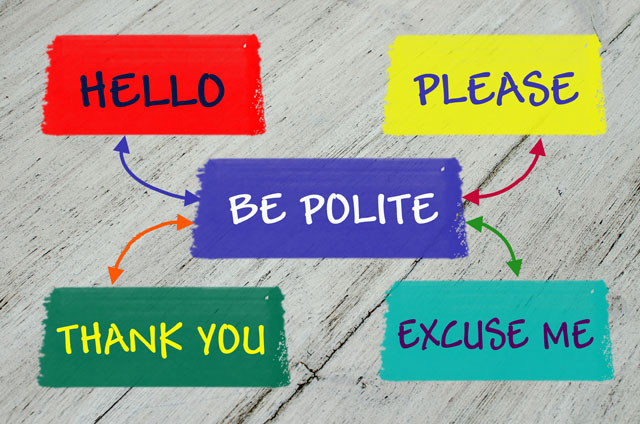Course Description
Just a little preparation and thought ahead of time can have wondrous effects on your interviewing skills. This course will go over the issues and provide an in-depth analysis of the interviewing process. With some independent practice, this course can help you prepare successfully for any job interview!
Topics include:
- Common Interview Questions
- What Employers Want
- Attitude and Effort
- Body Language
- Research
- The Mock Interview
- Phone Interviews
- Behavioral Interviews
- Closing the Interview
- Thank You Notes
Preparing for your job interview could very well be one of the most important moments of your career. Landing the perfect job can be a challenge, but with the determination and passion you will need to begin a successful career, you can easily overcome this challenge, and bring a lot of valuable experience with you to the next interview if you don't get the job. Just a little preparation and thought ahead of time can have wondrous effects on your interviewing skills. We will go over the issues and go into an in-depth analysis of the interviewing process. With some independent practice, this course can help you prepare successfully for any job interview! You can use your judgment to decide which things you would like to spend more time on, but make sure you can pass the quizzes at the end of each lesson!
Important Aspects of the Job Interview
Passion is the most important factor in landing the job that you desire. We do not believe that you can fake passion, so we will forego any advice relating to this.
Passion is what will motivate you to succeed in the job and passion is what you need in order to endure the long hours and problems that will arise in the future, if you get the job. If you have no passion for this position, you might as well move onto something that you will enjoy more. We don't advise working at a job that will make you miserable, or even a job that is lackluster. Settle for the best, most desirable position and focus all your energy on that instead of spreading yourself across multiple opportunities that, in the end, prove less fulfilling.
So, if you don't fake your passion, you need to bring up times in your past experience that indicate a deep passion for your work. Also, a passion for true excellence and a true desire to constantly improve are pretty much universally employable traits. You also show passion through your behavior and interest in the company. Again, the best advice we have for you is to be genuinely interested in the company that you are applying to. The second most important element to a successful interview is simply your attitude about the position, the company, and life in general. With a brilliant, positive and enthusiastic attitude you can outshine other candidates with a higher education level, more experience, or anyone otherwise more qualified than you are.
Your attitude is what employers will look at after all the fuss about experience and education comes into play. This is what distinguishes you from the "average Joes" and determines if you will make the cut or be dismissed. There are usually many other people who are capable of doing basically the same job, especially when you are talking entry level positions. Do you think it is the school you went to that stands out in the mind of the employer after they have interviewed, say, 15 or 20 different people?
So...Why is Attitude so Important?
Most large companies have enough people who are qualified on paper, but they are operating at around 40% to 50% efficiency. These companies would rather have someone who works well with others, brags less but acts more, and operates at a much higher efficiency because they have the right values--improvement, enthusiasm, and cooperation.
What most hiring managers look for are a winning attitude, the way your present yourself, and the way you can communicate that is through your interview. Don't be shy--include all your past achievements and if you aren't sure of how to communicate these things, just say it bluntly and back up your statement with examples such as "I have a passion for excellence," or, "I'm always striving to do my very best and I strive to awaken the same thing in others." Of course, don't lie about these things. Mention projects in the past where you have beaten deadlines, found creative solutions, made a difference by putting in extra effort, or some other example. If you don't feel you have any of these examples, closely analyze the times in your life when you have felt a sense of pride, or felt very connected with your work or what you were doing at the time.
- Completely Online
- Self-Paced
- Printable Lessons
- Full HD Video

- 6 Months to Complete
- 24/7 Availability
- Start Anytime
- PC & Mac Compatible
- Android & iOS Friendly
- Accredited CEUs

Learning Outcomes
- Prepare for the interview.
- Summarize common interview questions and questions to ask your future employer.
- Describe what employers want.
- Summarize proper attitude and effort employers are looking for.
- Describe body language and its impact on the interview.
- Research the company before doing the interview.
- Demonstrate the mock interview.
- Describe what to expect on phone interviews.
- Describe behavioral interviews.
- Summarize how to properly close the interview.
- Send thank-you notes and follow-up emails.
- Demonstrate mastery of lesson content at levels of 70% or higher.
Assessment Guide
| Assessment | Points |
|---|---|
| Lesson 1 Assignment: Take Stock of Your Accomplishments | 15 points |
| Lesson 1 Exam | 15 points |
| Lesson 2 Assignment: Preparing Your Answers | 20 points |
| Lesson 2 Exam | 35 points |
| Lesson 3 Assignment: Sizing up Your Skills | 15 points |
| Lesson 3 Exam | 32 points |
| Lesson 4 Assignment: Assessing Your Attitude | 10 points |
| Lesson 4 Exam | 14 points |
| Lesson 5 Assignment: Assessing Your Body Language | 10 points |
| Lesson 5 Exam | 13 points |
| Lesson 6 Assignment: Conducting Research | 20 points |
| Lesson 6 Exam | 12 points |
| Lesson 7 Assignment: Preparing for a Mock Interview | 20 points |
| Lesson 7 Exam | 13 points |
| Lesson 8 Assignment: Phone Interview Practice | 20 points |
| Lesson 8 Exam | 15 points |
| Lesson 9 Assignment: Prepping for the Behavioral Interview | 20 points |
| Lesson 9 Exam | 13 points |
| Lesson 10 Assignment: Coming up with your Close | 15 points |
| Lesson 10 Exam | 15 points |
| Lesson 11 Assignment: Writing a Thank You Letter | 15 points |
| Lesson 11 Exam | 14 points |
| The Final Exam | 50 points |





































